Diet Tips for Bodybuilding is a strategic and carefully planned approach to nutrition aimed at supporting muscle growth, maximizing performance, and achieving fitness goals. It involves consuming the right balance of macronutrients (protein, carbohydrates, and fats) and micronutrients (vitamins and minerals) to fuel the body during intense workouts, aid in muscle recovery, and promote overall well-being.
Here’s a breakdown of the key components of a Diet Tips For Bodybuilding:
Protein Intake:
Protein is the foundation of a bodybuilding diet. It provides essential amino acids necessary for muscle repair and growth. Aim to include high-quality protein sources in every meal, such as lean meats (chicken, turkey, beef, pork), fish, eggs, dairy products (Greek yogurt, cottage cheese), and plant-based options (tofu, tempeh, lentils, chickpeas). Protein intake should be distributed evenly throughout the day to support muscle protein synthesis.
Carbohydrates:
Carbohydrates are a primary energy source for bodybuilders, particularly during intense workouts. Complex carbohydrates like whole grains (brown rice, quinoa, oats), starchy vegetables (sweet potatoes, butternut squash), and legumes (black beans, lentils) provide sustained energy and support glycogen replenishment in muscles. Carbohydrates are essential for high-performance workouts and recovery.
Healthy Fats:
Healthy fats are crucial for hormone production, including testosterone, which plays a role in muscle growth. Sources of healthy fats include avocados, nuts, seeds, olive oil, fatty fish (salmon, mackerel), and coconut oil. Incorporating these fats in moderate amounts supports overall health and aids in nutrient absorption.
Micronutrients:
Vitamins and minerals are essential for numerous physiological processes, including energy metabolism, muscle function, and immune support. A diet rich in colorful fruits, vegetables, and whole foods ensures an adequate intake of micronutrients.
Hydration:
Proper hydration is vital for bodybuilders. Dehydration can impair performance and recovery. Aim to drink plenty of water throughout the day, and consider consuming electrolyte-rich beverages during and after intense workouts.
Pre-Workout Nutrition:
A balanced meal containing protein and carbohydrates before a workout provides energy and promotes muscle protein synthesis. Pre-workout snacks may include a protein shake with a banana or whole-grain toast with lean turkey.
Post-Workout Nutrition:
After exercise, the body is primed to absorb nutrients to support recovery. Consuming a post-workout meal or shake containing protein and carbohydrates within 30-60 minutes after exercise helps replenish glycogen stores and aids in muscle repair.
Caloric Surplus and Deficit:
Bodybuilders adjust their caloric intake based on their goals. During bulking phases, they consume a caloric surplus to support muscle growth. During cutting phases, they create a slight caloric deficit to lose body fat while preserving muscle mass.
Meal Timing:
Eating consistently throughout the day helps maintain stable blood sugar levels and supports muscle growth. Aim for 4-6 balanced meals, including snacks, to distribute nutrients effectively.
Personalization:
Every bodybuilder’s needs are unique. Personalize your diet based on factors like age, gender, activity level, metabolism, and individual fitness objectives.
Monitoring Progress:
Track your nutrition and progress to make adjustments as needed. Regularly assess your body composition, strength gains, and energy levels to ensure your diet aligns with your goals.
Here are some the Diet Tips plan for Bodybuilding Journey:
Chicken Breast:
Recipe: Grilled Lemon Herb Chicken – Marinate chicken breasts with lemon juice, garlic, olive oil, and your favorite herbs. Grill until fully cooked and serve with a side of quinoa and steamed vegetables.
Eggs:
Recipe: Spinach and Feta Egg Muffins – Whisk eggs with chopped spinach, feta cheese, and seasonings. Pour into muffin tins and bake until set for easy, grab-and-go protein-packed snacks.
Greek Yogurt:
Recipe: Greek Yogurt Parfait – Layer Greek yogurt with granola, fresh berries, and a drizzle of honey for a protein-rich and delicious breakfast or dessert.
Cottage Cheese:
Recipe: Cottage Cheese and Fruit Bowl – Top cottage cheese with sliced fruits like peaches, strawberries, and a sprinkle of nuts for added texture and nutrients.
Salmon:
Recipe: Baked Salmon with Lemon and Dill – Season salmon with lemon, dill, and a touch of olive oil. Bake until flaky and serve with a side of roasted sweet potatoes.
Tofu:
Recipe: Tofu Stir-Fry – Cube tofu and stir-fry with colorful vegetables and your favorite Asian sauce for a plant-based protein-packed meal.
Lean Beef:
Recipe: Beef Stir-Fry with Broccoli – Slice lean beef and stir-fry with broccoli, garlic, and ginger in a savory sauce.
Quinoa:
Recipe: Quinoa Salad with Chickpeas and Veggies – Mix cooked quinoa with chickpeas, diced cucumbers, cherry tomatoes, and a lemon-herb dressing.
Brown Rice:
Recipe: Brown Rice and Black Bean Burrito Bowl – Top brown rice with black beans, avocado slices, salsa, and shredded chicken or tofu for a satisfying and nutritious meal.
Sweet Potatoes:
Recipe: Stuffed Sweet Potatoes – Bake sweet potatoes and stuff them with a mix of lean ground turkey, black beans, and diced vegetables.
Oats:
Recipe: Overnight Oats – Combine oats, Greek yogurt, almond milk, and your favorite toppings like berries and nuts. Refrigerate overnight for a convenient breakfast.
Almonds:
Recipe: Almond-Crusted Chicken Tenders – Crush almonds and coat chicken tenders with them before baking for a crunchy and protein-packed meal.
Chickpeas:
Recipe: Chickpea Salad – Mix cooked chickpeas with diced cucumbers, cherry tomatoes, red onion, parsley, and lemon vinaigrette.
Black Beans:
Recipe: Black Bean and Quinoa Burritos – Mix cooked black beans and quinoa with sautéed peppers and onions, wrap in whole-grain tortillas, and top with avocado.
Lentils:
Recipe: Lentil Curry – Simmer lentils with coconut milk, curry spices, and vegetables for a flavorful and protein-rich vegetarian dish.
Spinach:
Recipe: Spinach and Mushroom Omelette – Whisk eggs with sautéed spinach and mushrooms for a nutrient-packed breakfast.
Broccoli:
Recipe: Roasted Broccoli with Parmesan – Toss broccoli florets with olive oil, garlic, and grated parmesan cheese before roasting until tender.
Brussels Sprouts:
Recipe: Honey Balsamic Brussels Sprouts – Roast halved Brussels sprouts with a drizzle of honey and balsamic vinegar until caramelized.
Asparagus:
Recipe: Grilled Asparagus with Lemon Zest – Grill asparagus spears and finish with a sprinkle of lemon zest.
Turkey Breast:
Recipe: Turkey and Avocado Wrap – Fill a whole-grain wrap with sliced turkey, avocado, lettuce, and a light spread of Greek yogurt dressing.
Bison:
Recipe: Bison Burger – Grill or pan-fry bison patties and serve on whole-grain buns with lettuce, tomato, and onion.
Greek-Style Yogurt:
Recipe: Greek Yogurt Bowl – Top Greek yogurt with sliced bananas, walnuts, and a drizzle of honey for a satisfying snack.
Chia Seeds:
Recipe: Chia Seed Pudding – Combine chia seeds with almond milk and your choice of sweetener. Refrigerate until it thickens and add fresh berries on top.
Flaxseeds:
Recipe: Flaxseed Smoothie – Blend flaxseeds into a fruit smoothie for added omega-3s and fiber.
Pumpkin Seeds:
Recipe: Pumpkin Seed Trail Mix – Combine pumpkin seeds with nuts and dried fruits for a protein-rich and portable snack.
Sunflower Seeds:
Recipe: Sunflower Seed Butter Toast – Spread sunflower seed butter on whole-grain toast and top with sliced bananas.
Pistachios:
Recipe: Pistachio-Crusted Fish – Crush pistachios and coat fish fillets before baking for a crunchy and flavorful dish.
Wild Rice:
Recipe: Wild Rice Pilaf – Cook wild rice with sautéed onions, carrots, and mushrooms for a hearty side dish.
Whole Grain Pasta:
Recipe: Whole Grain Pasta Primavera – Toss cooked whole grain pasta with a mix of colorful vegetables and a light olive oil dressing.
Whole Grain Bread:
Recipe: Turkey and Avocado Sandwich – Stack turkey slices, avocado, lettuce, and tomato between whole-grain bread slices.
Checkout How can you fuel your body for Maximum Muscle Growth?
Fueling your body for maximum muscle growth requires a well-balanced diet that provides the necessary nutrients to support muscle repair, recovery, and growth. Here’s a detailed guide on how to optimize your nutrition for muscle building:
Prioritize Protein Intake:
Protein is the building block of muscle, so it’s crucial to consume an adequate amount daily. Aim for 1.2 to 2.2 grams of protein per kilogram of body weight, depending on your activity level and muscle-building goals. Good sources of protein include lean meats, poultry, fish, eggs, dairy products, legumes, and plant-based options like tofu and tempeh.
Spread Protein Intake Throughout the Day:
Divide your protein intake evenly across your meals to support constant amino acid availability for muscle repair and growth. Including a protein source in each meal and snack helps maintain muscle protein synthesis.
Incorporate High-Quality Carbohydrates:
Carbohydrates are essential for providing energy during workouts and replenishing glycogen stores in muscles. Choose complex carbohydrates like brown rice, quinoa, sweet potatoes, whole-grain bread, and oats, as they offer sustained energy without rapid blood sugar spikes.
Don’t Forget Healthy Fats:
Healthy fats play a vital role in hormone production and overall health. Include sources like avocados, nuts, seeds, olive oil, and fatty fish (salmon, mackerel, sardines) in your diet.
Hydrate Properly:
Adequate hydration is crucial for optimal performance and recovery. Drink plenty of water throughout the day, especially during and after workouts. Dehydration can impair muscle function and hinder muscle growth.
Time Your Pre and Post-Workout Nutrition:
Consume a balanced meal containing protein and carbohydrates 1-2 hours before your workout to fuel your training session. After exercise, have a post-workout meal or shake with protein and carbohydrates to kickstart muscle recovery and replenish glycogen stores.
Implement Nutrient Timing:
Consider nutrient timing strategies like consuming a protein-rich meal before bed to support overnight muscle repair and growth. Additionally, have a meal or snack containing protein and carbohydrates within 30-60 minutes after intense workouts to optimize recovery.
Monitor Caloric Intake:
To promote muscle growth, ensure you’re in a slight caloric surplus (consuming more calories than you burn). Calculate your total daily energy expenditure (TDEE) and aim for a modest surplus to avoid excessive fat gain.
Don’t Skip Breakfast:
Breakfast sets the tone for your day and provides energy for morning activities. Include a protein source, healthy fats, and complex carbohydrates in your breakfast to fuel your body and support muscle growth.
Plan Your Meals:
Meal planning helps you stay consistent with your nutrition goals. Prepare balanced meals in advance to avoid impulsive food choices and ensure you’re meeting your nutritional needs.
Include a Variety of Foods:
A diverse diet ensures you get a wide range of nutrients. Incorporate various protein sources, vegetables, fruits, whole grains, and healthy fats into your meals.
Avoid Excessive Sugary and Processed Foods:
Limit sugary beverages, processed snacks, and high-fat fast foods. These foods provide empty calories and may hinder your muscle-building efforts.
Monitor Protein Synthesis:
Distribute your protein intake across meals to optimize muscle protein synthesis. Consuming 20-40 grams of protein per meal stimulates protein synthesis effectively.
Consider Protein Supplements:
Whey protein powder is a convenient and effective way to boost protein intake, especially when it’s challenging to get enough from whole foods.
Get Sufficient Sleep:
Quality sleep is essential for muscle recovery and growth. Aim for 7-9 hours of sleep each night to optimize your body’s regenerative processes.
Pay Attention to Micronutrients:
Ensure you’re getting enough vitamins and minerals through a balanced diet or supplements if needed. Micronutrients support various bodily functions, including muscle repair and growth.
Limit Alcohol Consumption:
Excessive alcohol consumption can hinder muscle recovery and negatively affect your overall fitness progress. Limit alcohol intake or avoid it altogether if possible.
Adjust Your Diet During Different Phases:
During bulking phases, increase calorie intake to support muscle growth. During cutting phases, slightly reduce calories to promote fat loss while preserving muscle mass.
Stay Consistent:
Consistency is key to seeing results. Stick to your nutrition plan and training routine to maximize muscle growth over time.
Listen to Your Body:
Every individual’s dietary needs and responses are different. Pay attention to how your body responds to various foods and adjust your diet accordingly.
Remember, nutrition is just one part of the muscle-building equation. Combine your balanced diet with a well-structured workout routine, progressive overload, and adequate rest to achieve maximum muscle growth and overall fitness success. These are the key points in Diet Tips for Bodybuilding. Consult a registered dietitian or nutritionist for personalized advice and guidance on tailoring your nutrition to your specific goals and needs.

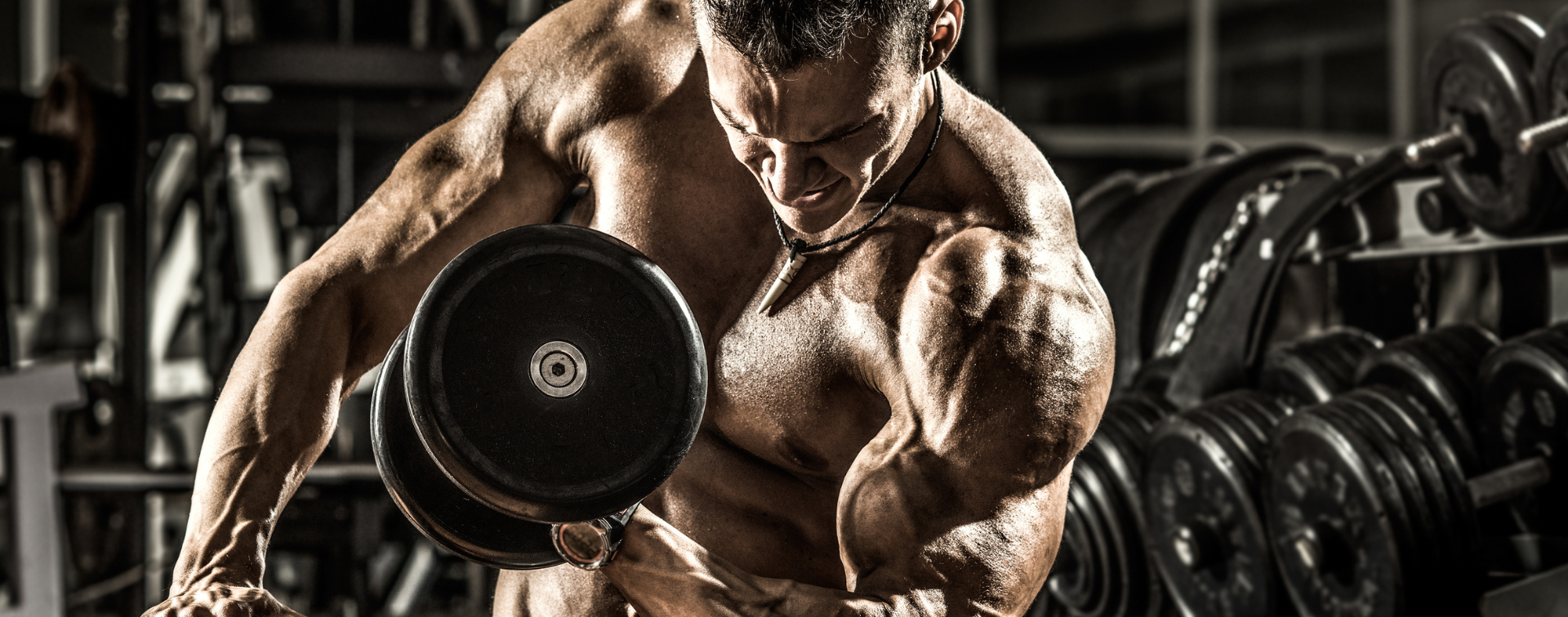

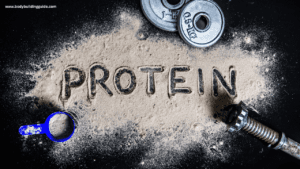
![Are Avocados Healthy? [Facts About Avocado Diet and Bodybuilding] _gym (18)](https://bodybuildingguide.net/wp-content/uploads/2019/10/gym-18-2-300x118.png)
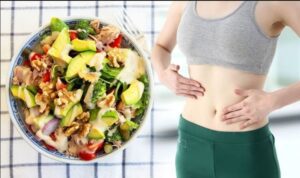

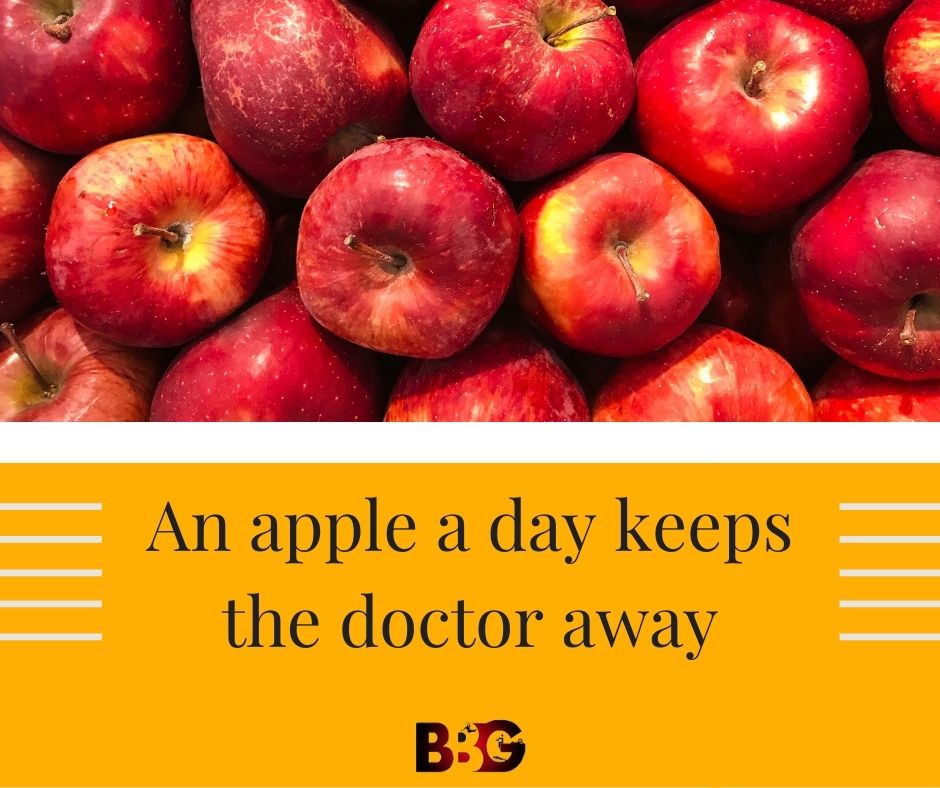

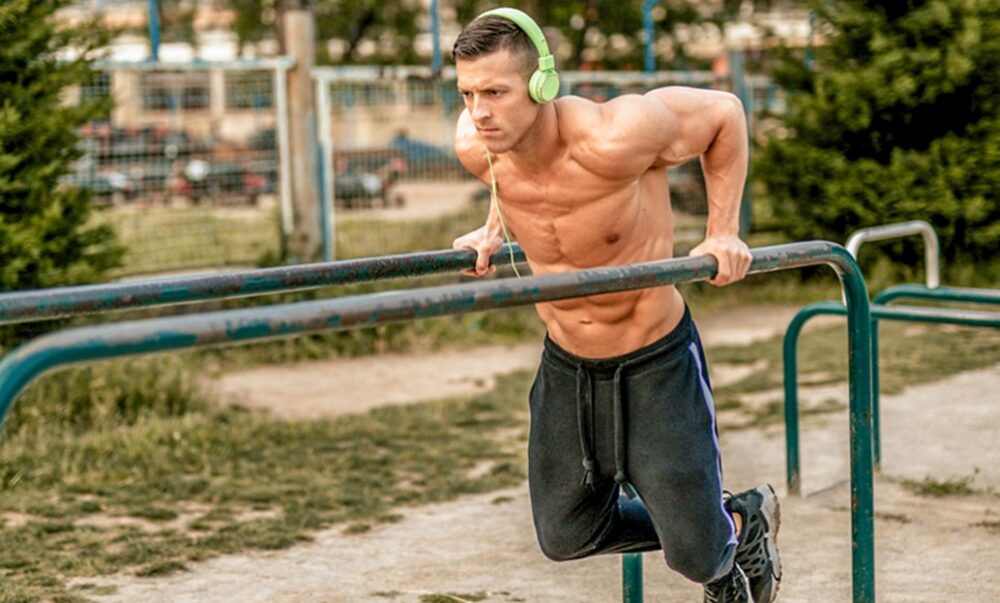
биржа аккаунтов https://birzha-akkauntov-online.ru/
безопасная сделка аккаунтов платформа для покупки аккаунтов
платформа для покупки аккаунтов купить аккаунт
маркетплейс аккаунтов соцсетей покупка аккаунтов
гарантия при продаже аккаунтов маркетплейс аккаунтов
продажа аккаунтов маркетплейс для реселлеров
Buy Account Buy Account
Gaming account marketplace Account Selling Platform
Account Buying Platform Accounts market
Accounts for Sale Account Buying Service
Account marketplace Account market
Profitable Account Sales Account Selling Platform
Website for Buying Accounts https://buyagedaccounts001.com
Verified Accounts for Sale Account Trading Service
Find Accounts for Sale Buy Account
Account Trading Profitable Account Sales
sell account account catalog
website for selling accounts accounts for sale
sell accounts online account store
verified accounts for sale account exchange
account acquisition account marketplace
website for buying accounts account purchase
account marketplace account catalog
account store account marketplace
find accounts for sale https://accounts-marketplace.org
Very nice write-up. I certainly love this site. Thanks!
Here is my blog: nordvpn coupons Inspiresensation
database of accounts for sale secure account sales
accounts for sale website for buying accounts
account exchange service online account store
guaranteed accounts accounts market
secure account purchasing platform https://buy-social-accounts.org/
Wow! This blog looks exactly like my old one! It’s on a totally different subject
but it has pretty much the same layout and design. Great choice
of colors!
Review my blog post :: nordvpn coupons inspiresensation (http://s.bea.sh)
account selling service account market
account buying platform account exchange service
secure account sales sell pre-made account
Link exchange is nothing else however it is simply placing the other person’s webpage link on your page at proper place and other
person will also do similar in support of you.
Also visit my web blog – nordvpn coupons inspiresensation (come.ac)
account market account selling platform
account exchange sell account
gaming account marketplace account marketplace
buy account account catalog
sell pre-made account marketplace for ready-made accounts
account exchange profitable account sales
secure account sales guaranteed accounts
Nordvpn Coupons 350fairfax
Fantastic beat ! I would like to apprentice even as you amend your site,
how can i subscribe for a blog website? The account aided
me a acceptable deal. I have been tiny bit acquainted of this your
broadcast offered bright clear idea
account trading platform https://accounts-offer.org
sell account https://accounts-marketplace.xyz
account exchange service account marketplace
accounts for sale https://accounts-marketplace.live
account acquisition https://social-accounts-marketplace.xyz
sell accounts https://buy-accounts.space
buy pre-made account https://buy-accounts-shop.pro/
website for selling accounts https://buy-accounts.live
account exchange https://accounts-marketplace.online
website for selling accounts https://social-accounts-marketplace.live
account market https://accounts-marketplace-best.pro
маркетплейс аккаунтов соцсетей https://akkaunty-na-prodazhu.pro
купить аккаунт https://rynok-akkauntov.top
биржа аккаунтов https://kupit-akkaunt.xyz
продать аккаунт akkaunt-magazin.online
купить аккаунт купить аккаунт
маркетплейс аккаунтов https://kupit-akkaunty-market.xyz/
маркетплейс аккаунтов https://akkaunty-optom.live
продажа аккаунтов https://online-akkaunty-magazin.xyz
площадка для продажи аккаунтов https://akkaunty-dlya-prodazhi.pro
маркетплейс аккаунтов соцсетей https://kupit-akkaunt.online/
buy facebook accounts for advertising https://buy-adsaccounts.work/
buy facebook advertising accounts buy facebook advertising accounts
buy account facebook ads https://buy-ad-account.top
cheap facebook accounts https://buy-ads-account.click
buy facebook ad account https://ad-account-buy.top/
buy facebook old accounts buying facebook ad account
buying fb accounts buy facebook ad account
buy facebook ad account buy fb account
buy google ads https://buy-ads-account.top
google ads account for sale google ads accounts
fb accounts for sale buy account facebook ads
buy google ad threshold account https://ads-account-for-sale.top
buy google ads invoice account https://ads-account-buy.work/
google ads agency accounts https://buy-ads-invoice-account.top
google ads account seller https://buy-account-ads.work
adwords account for sale buy google ads
buy aged google ads account buy google ads agency account
buy google ads account https://ads-agency-account-buy.click/
facebook business manager account buy https://buy-business-manager.org
buy google ads invoice account https://buy-verified-ads-account.work
buy facebook business account buy-bm-account.org
facebook business account for sale buy-verified-business-manager-account.org
buy verified business manager buy-verified-business-manager.org
facebook bm for sale facebook bm for sale
buy fb business manager https://business-manager-for-sale.org
buy facebook business managers buy-business-manager-verified.org
verified bm buy-bm.org
buy business manager https://buy-business-manager-accounts.org/
buy tiktok ads accounts https://buy-tiktok-ads-account.org
buy fb bm https://verified-business-manager-for-sale.org/
tiktok ads agency account https://tiktok-ads-account-buy.org
buy tiktok ads https://tiktok-ads-account-for-sale.org
buy tiktok business account https://tiktok-agency-account-for-sale.org
buy tiktok ads accounts https://buy-tiktok-ad-account.org
tiktok ad accounts https://buy-tiktok-ads-accounts.org
buy tiktok ad account https://tiktok-ads-agency-account.org
tiktok ads agency account https://buy-tiktok-business-account.org
buy tiktok ads accounts https://buy-tiktok-ads.org
Enjoyed looking through this, very good stuff, thanks. “Management is nothing more than motivating other people.” by Lee Iacocca.
We’re a gaggle of volunteers and opening a brand new scheme in our community. Your site offered us with helpful info to work on. You have done a formidable activity and our entire community will be grateful to you.
¡Hola, apasionados del juego !
Casinos extranjeros con privacidad para el jugador – https://www.casinoextranjerosespana.es/ casino online extranjero
¡Que disfrutes de asombrosas tiradas exitosas !
¡Saludos, buscadores de tesoros!
Casino online extranjero con torneos en vivo – https://casinosextranjerosenespana.es/# casinos extranjeros
¡Que vivas increíbles jugadas excepcionales !
¡Hola, estrategas del azar !
Casinos sin registro ni verificaciГіn obligatoria – http://casinossinlicenciaespana.es/ casino sin licencia espaГ±ola
¡Que experimentes victorias legendarias !
¡Hola, maestros del juego !
casino fuera de espaГ±a con interfaz sencilla – https://www.casinoonlinefueradeespanol.xyz/ casinos online fuera de espaГ±a
¡Que disfrutes de asombrosas premios extraordinarios !
¡Saludos, amantes de la adrenalina !
Tips para aprovechar bonos de casinos extranjeros – https://casinoextranjerosenespana.es/# casinos extranjeros
¡Que disfrutes de tiradas afortunadas !
¡Saludos, descubridores de tesoros !
Mejores casinos extranjeros con slots 3D – https://casinosextranjero.es/# mejores casinos online extranjeros
¡Que vivas increíbles recompensas sorprendentes !
¡Hola, fanáticos del riesgo !
Casinoextranjero.es analiza casinos internacionales 2025 – https://www.casinoextranjero.es/# casino online extranjero
¡Que vivas momentos únicos !
¡Hola, exploradores del azar !
Casino online extranjero con bonos sorpresas – п»їhttps://casinosextranjerosdeespana.es/ mejores casinos online extranjeros
¡Que vivas increíbles instantes únicos !
¡Saludos, amantes de la emoción !
casinosonlinefueraespanol con foro de usuarios – https://www.casinosonlinefueraespanol.xyz/ casinos online fuera de espaГ±a
¡Que disfrutes de logros impresionantes !
¡Bienvenidos, buscadores de fortuna !
Casino fuera de EspaГ±a con torneos automГЎticos – https://casinofueraespanol.xyz/# casinofueraespanol
¡Que vivas increíbles premios excepcionales !
?Hola, estrategas del riesgo !
casino fuera de EspaГ±a con recargas rГЎpidas – п»їhttps://casinosonlinefueradeespanol.xyz/ casino por fuera
?Que disfrutes de asombrosas recompensas unicas !
Hello advocates of well-being !
What Is the Best Air Purifier for Cigarette Smoke Now? – https://bestairpurifierforcigarettesmoke.guru/# best air purifier for smoke
May you experience remarkable pristine moments !
¡Saludos, maestros del juego !
Mejores casinos extranjeros con tragaperras clГЎsicas – https://www.casinoextranjerosdeespana.es/# п»їcasinos online extranjeros
¡Que experimentes maravillosas triunfos inolvidables !
¡Hola, buscadores de recompensas excepcionales!
Casinos sin licencia con promociones adaptadas al jugador – http://casinosinlicenciaespana.xyz/# п»їcasinos sin licencia en espaГ±a
¡Que vivas increíbles recompensas asombrosas !
¡Bienvenidos, aventureros del azar !
Casinos sin registro sin tarjetas – https://mejores-casinosespana.es/# casino sin licencia en espaГ±a
¡Que experimentes maravillosas tiradas afortunadas !
I have been browsing online more than 4 hours today, yet I never found any interesting article like yours.
It is pretty worth enough for me. In my view, if all site owners and bloggers made good content as you did, the
net will be a lot more useful than ever before.
my site; Eharmony Special Coupon Code 2025
¡Saludos, fanáticos de los desafíos !
Casino sin licencia sin validaciГіn de identidad – http://emausong.es/ casinos sin licencia en EspaГ±ola
¡Que disfrutes de increíbles victorias épicas !
¡Hola, aventureros de sensaciones intensas !
Casino online sin licencia con tragamonedas interactivas – https://casinosonlinesinlicencia.es/ casinos sin registro
¡Que vivas increíbles giros afortunados !
I think other web-site proprietors should take this web site as an model, very clean and wonderful user genial style and design, as well as the content. You are an expert in this topic!
Greetings, hunters of extraordinary gags!
One liner jokes for adults with punch – https://jokesforadults.guru/# short jokes for adults one-liners
May you enjoy incredible side-splitting jokes !
¡Saludos, buscadores de tesoros escondidos !
Casino bono de bienvenida solo registro – http://bono.sindepositoespana.guru/# casino online bono de bienvenida
¡Que disfrutes de asombrosas tiradas exitosas !
Nice blog! Is your theme custom made or did you download it
from somewhere? A design like yours with a few simple adjustements would really make my blog jump out.
Please let me know where you got your theme. Kudos
My blog post :: Vpn
Wow! This blog looks exactly like my old one! It’s on a entirely different topic but it has pretty much the same page layout and design. Superb choice of colors!
Hello pioneers of pure ambiance !
Best air purifier for smokers under $200 – п»їhttps://www.youtube.com/watch?v=fJrxQEd44JM air purifier for cigarette smoke
May you delight in extraordinary refined moments !
Greetings, devotees of smart humor !
jokes for adults are often smarter and more layered than expected. That’s the beauty of mature comedy. It rewards those who pay attention.
short jokes for adults one-liners pack big laughs in tiny sentences. hilarious jokes for adults You can memorize ten of them in five minutes. Great ammo for social events.
Read These 10 funniest jokes for adults Right Now – п»їhttps://adultjokesclean.guru/ 10 funniest jokes for adults
May you enjoy incredible clever quips !
buy old facebook account for ads account buying service account trading platform
fb accounts for sale account exchange service marketplace for ready-made accounts
I am genuinely grateful to the owner of this web page who has shared this enormous
post at at this place. https://tinyurl.com/2ah5u2sb gamefly
Pretty nice post. I just stumbled upon your blog and wanted to say that I’ve truly enjoyed
surfing around your blog posts. In any case I will be subscribing
to your feed and I hope you write again soon! Vpn what
is it https://tinyurl.com/2y95dtjr
I’d have to examine with you here. Which is not one thing I usually do! I take pleasure in reading a post that may make folks think. Additionally, thanks for permitting me to comment!
Salutations to all excitement chasers !
Start your journey with 1xbet nigeria registration and explore live betting options. Register now to enjoy exclusive offers tailored for Nigerian users. 1xbet ng login registration The process of 1xbet nigeria registration is fast, safe, and user-friendly.
Try 1xbet registration by phone number nigeria and skip all the email hassle. Just verify your number and you’re in. Everyone appreciates how efficient 1xbet registration by phone number nigeria is.
Detailed guide for 1xbet ng login registration online – 1xbetnigeriaregistration.com.ng
Wishing you thrilling treasures !
Warm greetings to all casino enthusiasts!
1xbet ng login registration online ensures that players can sign up and log in without delay. The intuitive interface guides you step by step. 1xbet nigeria login registration. Once your 1xbet Nigeria login registration is complete, you’ll have full access to sports, casino, and bonuses.
You can complete your 1xbet registration by phone number Nigeria without filling out complex forms. Just enter your number, receive a code, and you’re in. 1xbet registration Nigeria has never been easier or faster.
Register by phone number Nigeria with 1xbet the easy way – п»їhttps://1xbet-nigeria-registration-online.com/
Hoping you hit amazing grand wins !
Pretty! This has been an extremely wonderful article.
Many thanks for providing these details.
levitra medication uses bayer glaxosmithkline levitra best levitra dose
I got this website from my friend who told me about
this web site and now this time I am browsing this site
and reading very informative posts at this place.
Exactly what I was looking for. If you want to learn more, HumanWhisper is worth visiting.